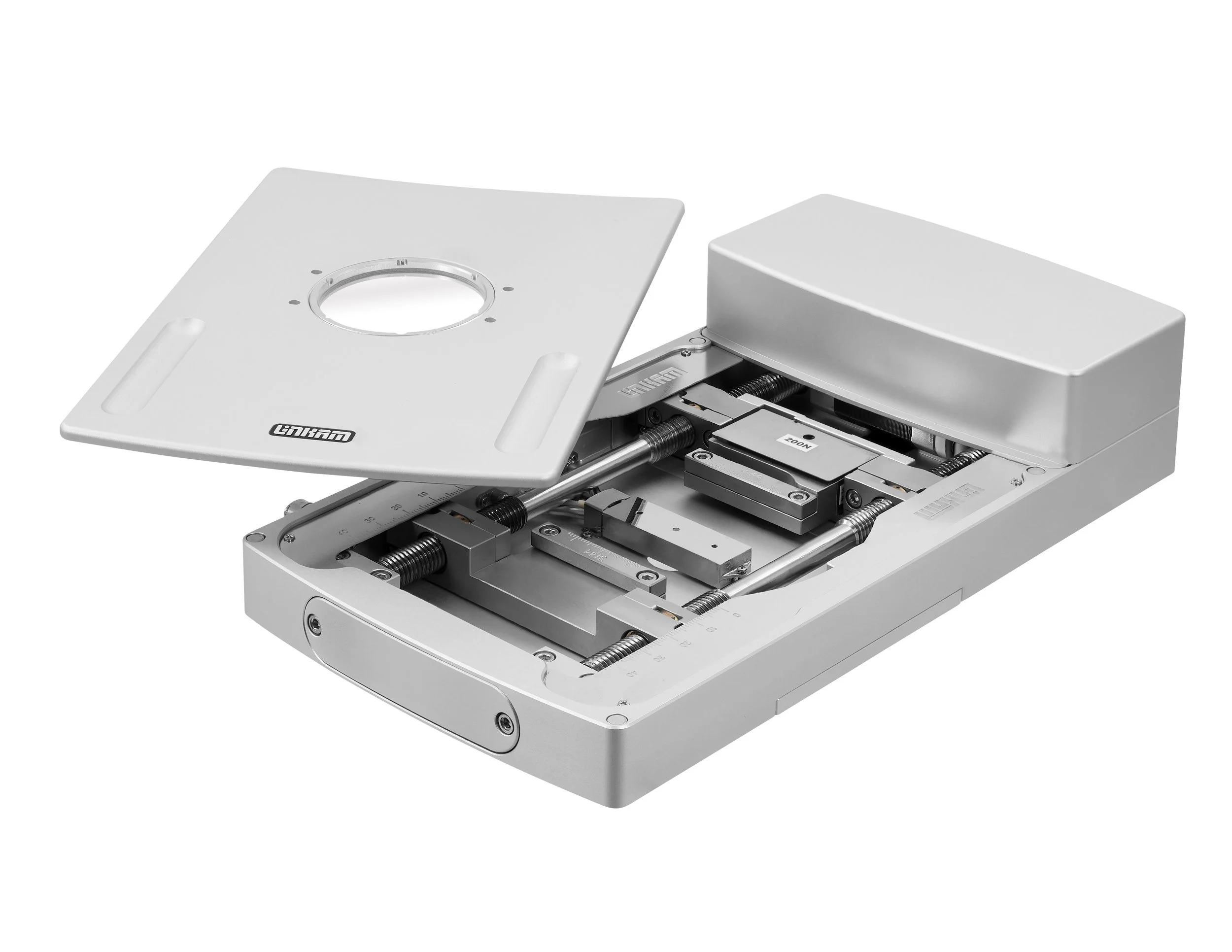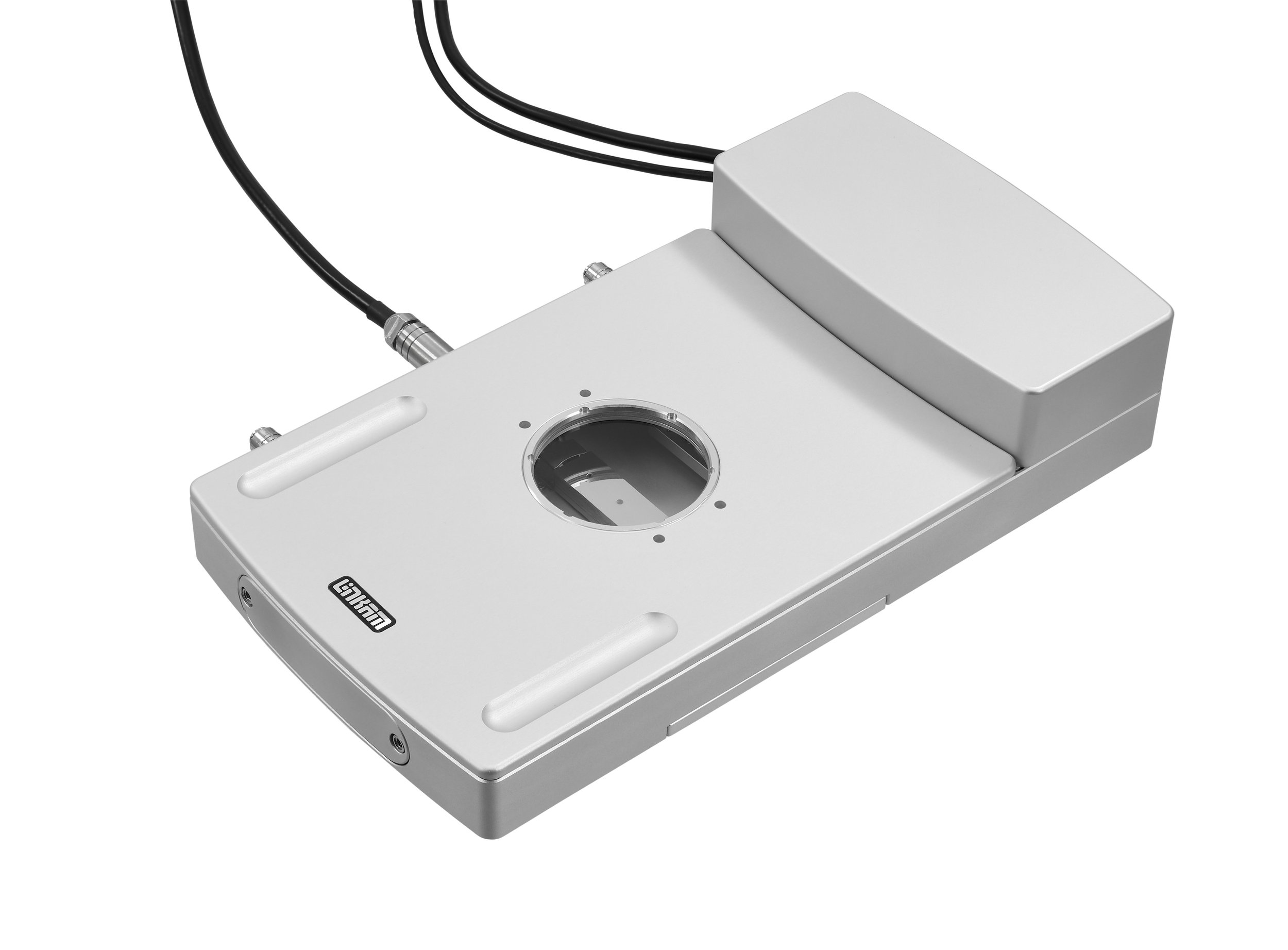Read more about how Linkam’s mechanical testing systems (MFS and TST350) have been used by researchers.
APPLICATION NOTES
Dr. Benjamin Schmuck and his team used a Linkam modular force stage (MFS) to further our understanding of spider silk’s mechanical properties – and potential applications.
Dr. Benjamin Schmuck and his team used a Linkam Modular Force Stage to investigate spider silk’s mechanical properties – and potential applications.
With increased pressure on the electronics sector to deliver greener technology with uncompromised performance, materials research and development has stepped up to the fore.
The understanding of microscopic and thermo-mechanical properties is at the core of materials science research. Here we look at how mechanical characterisation can be used to observe and image materials at the microscale.
Researchers at Reading Scientific Services Ltd. (RSSL) performed tensile testing on both chicken and plant-based chicken alternative samples.
Researchers in Switzerland used Linkam’s mechanical testing system to study the mechanical integrity and adhesive properties of polymer coatings.
Researchers at the University of Bath, UK develop understanding of novel materials with single-walled carbon nanotubes using Linkam’s tensile stages.
Researchers at the National Chemical Laboratory, India, explain how Linkam’s TST350 (now MFS) can be used to calculate the essential work of fracture for polymeric materials.
Researchers from the University of Liverpool used Linkam’s TST350 (now replaced by the updated MFS) to study biomaterials for corneal replacement.
Researchers in Lausanne, Switzerland, used Linkam’s mechanical testing system to study the effect of temperature on the adhesion of transparent thin film electrodes on polymers.
Research papers
Researchers used Linkam’s Modular Force Stage (MFS) to investigate treatments for osteoporosis in fractures of femoral bones.
Researchers at Imperial College London, UK added geo-inspired double-walled nanotubes to a polymer matrix in order to improve its tensile properties.
Researchers used Linkam’s TST350, now MFS to image and measure the tensile properties of nanocomposite samples synthesised by coagulation spinning using carbon nanotubes.













